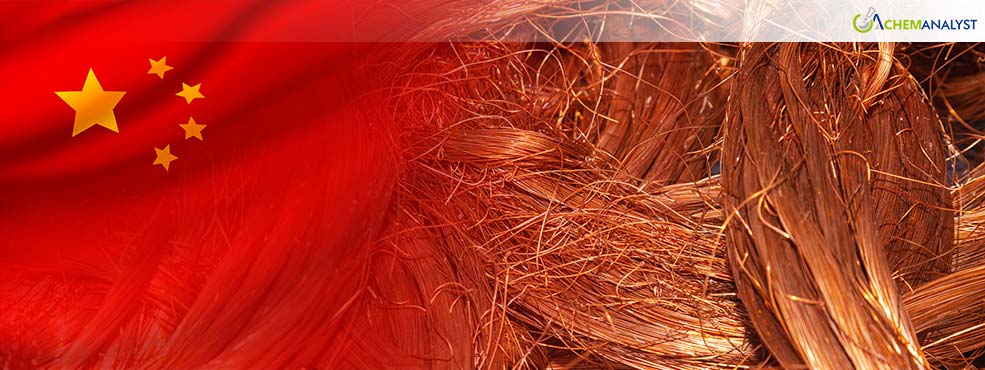Welcome To ChemAnalyst

Starting next year, China will lower import tariffs on ethane and certain recycled copper and aluminum raw materials, according to an announcement from the government on Saturday. The Ministry of Finance revealed these tariff adjustments, which will take effect on January 1, with the aim of boosting imports of high-quality products, expanding domestic demand, and supporting the country’s ongoing efforts toward greater economic openness.
As part of these adjustments, provisional import tariffs will be set below the most-favored-nation rates for a total of 935 items, the Ministry explained. Among these changes, the reduction in tariffs on ethane and specific recycled copper and aluminum materials is seen as part of China's strategy to promote green and low-carbon development. This move is aligned with the country’s broader sustainability goals, which include reducing carbon emissions and supporting the circular economy.
While tariffs on certain materials will decrease, other commodities will experience tariff increases. For example, tariffs will rise on molasses and sugar-containing pre-mixed powders, reflecting changes in global market dynamics and domestic policy goals. Conversely, tariff reductions will apply to a range of other goods, including cyclic olefin polymers, ethylene-vinyl alcohol copolymers, and automatic transmissions for special-purpose vehicles such as fire trucks and maintenance vehicles. These adjustments reflect China's focus on enhancing its high-tech manufacturing capabilities and improving the efficiency of its emergency and industrial vehicles.
Additionally, China will reduce tariffs on items critical for medical and technological advancements, such as sodium zirconium cyclosilicate, viral vectors used in CAR-T cancer therapies, and nickel-titanium alloy wires, which are essential for surgical implants. These measures aim to foster innovation and increase access to cutting-edge medical technologies, aligning with China’s healthcare goals.
Moreover, the China-Maldives Free Trade Agreement is set to come into effect on January 1, bringing further tariff reductions as part of the bilateral trade arrangement between the two nations. The Ministry of Finance highlighted that this agreement would facilitate smoother trade flows between China and the Maldives, potentially opening up new opportunities for both countries' industries.
In summary, these tariff adjustments, which include both reductions and increases, are part of China's broader strategy to encourage the importation of high-quality, sustainable goods while also stimulating domestic economic growth and innovation. By adjusting import tariffs across a wide range of sectors, China is positioning itself to foster a more open, competitive, and environmentally responsible economy.
We use cookies to deliver the best possible experience on our website. To learn more, visit our Privacy Policy. By continuing to use this site or by closing this box, you consent to our use of cookies. More info.
